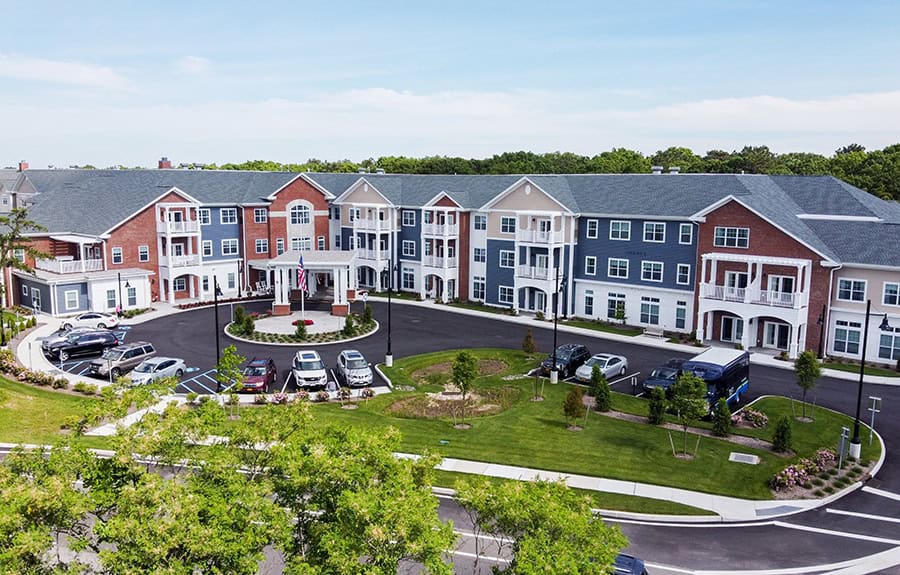Choosing the right retirement home is a major life decision that requires careful evaluation. After years of hard work, it’s time to enjoy the next phase of life in comfort, security, and convenience. Retirement homes are no longer just about providing basic shelter for seniors; they now offer a wide range of amenities and services that can dramatically enhance the quality of life. From healthcare options to recreational activities, evaluating what each retirement community offers is crucial to making the right choice.
In this guide, we will explore key factors to consider when evaluating the amenities and services offered by Retirement Homes for Sale. By understanding the importance of each amenity and service, you can make an informed decision that matches your lifestyle, preferences, and needs.
Healthcare Services and Medical Support
The availability of healthcare services is often a primary concern when selecting a retirement home. As we age, access to quality healthcare becomes increasingly important, and retirement communities must offer sufficient medical support to meet residents’ needs.
Key considerations include:
- On-site medical facilities: Some retirement homes have on-site medical clinics, while others partner with nearby hospitals or healthcare providers. On-site healthcare services can offer quick medical attention when needed.
- Nursing staff: Inquire whether the community has full-time nursing staff, including registered nurses and caregivers, to assist with daily health monitoring, medication management, and emergency care.
- Specialized care options: If you have pre-existing medical conditions or expect to need more support in the future, check if the retirement community offers specialized care, such as memory care for dementia or Alzheimer’s patients, rehabilitation services, or physical therapy.
A retirement home with easy access to these healthcare services can ensure peace of mind and continued well-being.
Accommodation Options and Living Spaces
Another key factor to consider when evaluating retirement homes is the type of accommodation. A comfortable, functional, and well-designed living space can significantly impact one’s quality of life.
When evaluating accommodation, consider the following:
- Size and layout of the living spaces: Retirement homes often offer a variety of living spaces, from studio apartments to larger two- or three-bedroom units. Assess whether the size and layout meet your needs in terms of mobility, storage, and comfort.
- Design and accessibility: Evaluate the home for senior-friendly design elements, such as wide doorways, bathroom grab bars, non-slip flooring, and minimal stairs. Accessible living spaces are crucial for maintaining independence.
- Privacy vs. community: Some retirement homes have shared living arrangements, while others offer more privacy. Decide whether you prefer a more communal atmosphere or a more private living arrangement.
Recreational and Social Amenities
Retirement is often seen as a time to explore new hobbies, socialize, and enjoy leisure activities. The availability of recreational and social amenities is a significant aspect of a retirement home’s appeal.
Key amenities to consider:
- Fitness centers and exercise programs: Regular physical activity is vital for maintaining health and mobility in later years. Many retirement homes offer fitness centers, swimming pools, and group exercise programs like yoga, Pilates, or aqua aerobics.
- Social clubs and activities: Look for retirement homes that offer a variety of social clubs and activities, such as book clubs, art classes, music lessons, and gardening groups. These activities provide opportunities to meet other residents, build friendships, and stay mentally engaged.
- Outdoor spaces: Many retirees enjoy spending time outdoors. Evaluate the quality of the community’s gardens, walking paths, and outdoor seating areas. Access to green spaces can boost mood and mental well-being.
- Entertainment options: Some retirement homes offer movie nights, live performances, guest lectures, or day trips to nearby attractions. An active social calendar can keep residents engaged and fulfilled.
Dining Options and Nutritional Services
Good nutrition plays a vital role in maintaining health as we age. When evaluating a retirement home, consider the quality of the dining services and food options available.
Consider these dining factors:
- Meal plans and flexibility: Some retirement homes offer flexible dining plans, allowing residents to eat when they prefer, while others may have set meal times. Make sure the meal schedule aligns with your preferences.
- Dietary accommodations: If you have specific dietary restrictions, such as low-sodium, gluten-free, or vegetarian diets, ensure the community can accommodate these needs. A good retirement home should have options for special diets and personal preferences.
- Dining venues: Retirement homes may have formal dining rooms, casual cafes, or even in-room dining options. Evaluate the variety and atmosphere of dining facilities to see if they match your lifestyle.
Transportation Services
One of the major benefits of living in a retirement home is access to transportation services. These services can help residents maintain their independence while providing safe, reliable options for getting around.
Key transportation factors include:
- Scheduled transportation: Many retirement homes offer scheduled transportation for doctor appointments, grocery shopping, or trips to local attractions. Check the frequency and destinations of these services.
- Private transportation: Some communities offer private car services or shuttles for residents who prefer more flexible travel plans.
- Accessibility: Ensure the vehicles are accessible for individuals with mobility issues, including wheelchair access if needed.
Reliable transportation services can help you remain connected with the surrounding community while minimizing stress.
Housekeeping and Maintenance
Living in a retirement home should mean fewer chores and more time to enjoy life. Housekeeping and maintenance services are key to creating a worry-free lifestyle in retirement.
Consider the following services:
- Housekeeping services: Many retirement homes offer housekeeping services that include cleaning, laundry, and linen changes. Evaluate the frequency and scope of these services to ensure they meet your needs.
- Maintenance and repairs: Retirement communities often have on-site staff who can handle repairs or routine maintenance, such as fixing appliances or replacing light bulbs. Find out how responsive and efficient the maintenance team is.
- Groundskeeping: Well-maintained grounds and communal areas can contribute to the overall ambiance of the retirement home. Check whether the retirement home maintains its outdoor spaces and communal areas to high standards.
Security and Safety Features
Safety and security are essential considerations when choosing a retirement home. As we age, we may become more vulnerable to falls or other health issues, making it important to live in a secure environment.
Evaluate security features such as:
- 24-hour security: Many retirement homes offer 24-hour security staff, gated entry, or surveillance systems to ensure residents’ safety.
- Emergency response systems: Look for homes with emergency response systems, such as personal alarms, in-room call buttons, or wearable devices that allow residents to call for help if needed.
- Fall prevention: Ensure the home has fall-prevention features like non-slip flooring, grab bars, and well-lit hallways.
Costs and Contracts
Understanding the costs and terms of living in a retirement home is vital to making a financially sustainable decision. Pricing can vary significantly depending on location, amenities, and services offered.
Consider these financial aspects:
- Upfront costs and monthly fees: Many retirement homes require an initial buy-in or entry fee, followed by monthly maintenance fees. Ensure you understand what’s included in these costs, such as utilities, housekeeping, and meal services.
- Contract terms: Some communities offer rental agreements, while others may have long-term contracts or even purchase options. Carefully review the contract terms, including what happens if your care needs change over time.
- Cost of additional services: Many retirement homes offer optional services like personal care assistance, transportation, or special activities for an extra fee. Be sure to factor these potential costs into your budget.
Conclusion
Evaluating the amenities and services offered by retirement homes for sale is an essential step in finding the perfect home for your retirement years. By considering factors like healthcare, accommodation options, social and recreational activities, dining services, transportation, and security, you can make an informed decision that aligns with your lifestyle and needs.
Expand your horizons! Visit Creative Released for fresh takes on today’s hottest topics.



